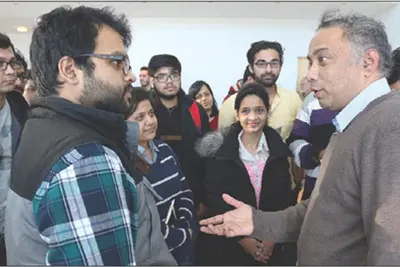
Our researchers focus on advancing widespread use the most abundant form of renewable energy, solar energy. We work on inventing, implementing and evaluating devices and methods for the incorporation of solar energy directly into societal needs.
A key research area is the analysis of the performance and durability of solar photovoltaic (PV) systems, PV system prototyping, and building-integrated PV applications. Another research area is the synthesis of fuels, chemicals, and materials from low-value feedstock, such as carbon dioxide and methane, through the direct use of solar energy via photo-electrochemical, photo-thermochemical, or plasma-chemical methods. Our research is supported by funding from industry partners and government agencies, including the National Science Foundation (NSF), the Department of Energy (DOE), the Massachusetts Clean Energy Center (MassCEC), and the Office of Naval Research (ONR).
Research Highlight
Prof. Cordula Schmid, Ph.D., and Samuel Alpert, Ph.D. presented at the 2022 IEEE Electrical, Computer and Energy Technologies International Conference, providing a review of roof integrated photovoltaics systems and discusses current developments. Read their article, "A review of roof integrated photovoltaics systems".










